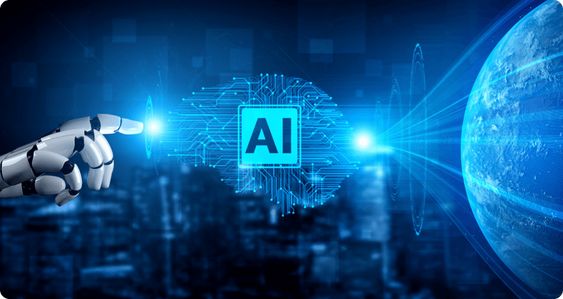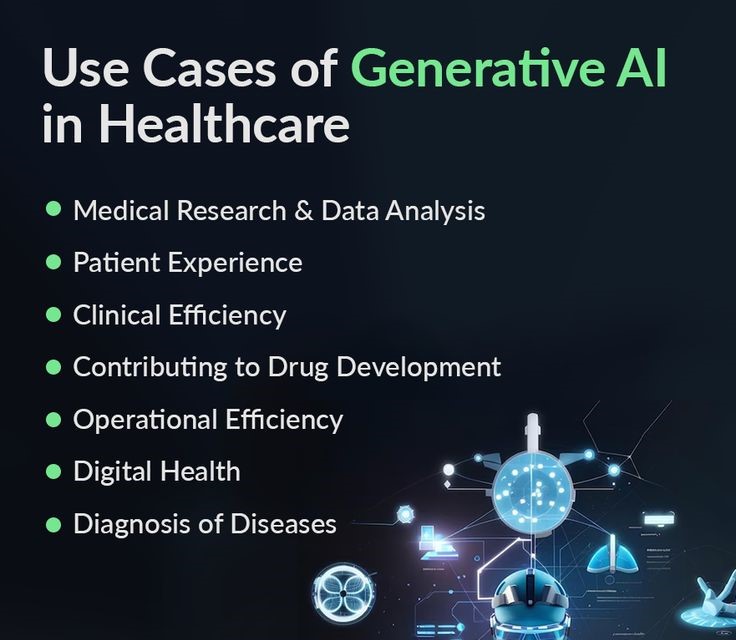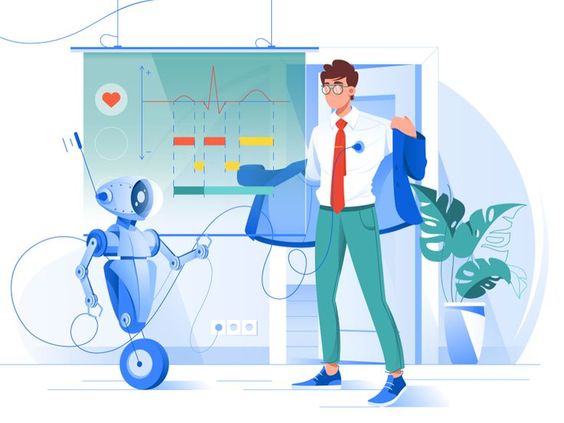
Table of Contents
The field of nursing, at the heart of healthcare, is witnessing a transformative evolution driven by the emergence of Artificial Intelligence (AI). This technological revolution promises to redefine the landscape of nursing practice, empowering nurses with unprecedented tools and insights to deliver better patient care.
While some might fear AI replacing human nurses, the reality is much more nuanced. AI is poised to augment and enhance nursing capabilities, freeing up precious time for nurses to focus on what matters most – human connection and personalized care.
This article offers comprehensive guidelines on how to craft an impactful essay about the role of AI in healthcare. It can be an invaluable resource for both learners and professionals, yearning to gain insights into the impacts of Artificial Intelligence in healthcare.
What is AI?

AI, or Artificial Intelligence, is the simulation of human intelligence processes by computers. These processes include:
- Learning: Acquiring knowledge and skills from data.
- Reasoning: Using logic and rules to make deductions and draw conclusions.
- Problem-solving: Finding solutions to complex challenges.
- Perception: Understanding and interpreting information from the real world, such as images, sounds, and text.
- Natural language processing: Communicating and interacting with humans using natural language.
Types of AI:
There are many different types of AI, but they can be broadly categorized as follows:
- Narrow or Weak AI: AI systems designed to perform specific tasks, such as playing chess or recommending products. Most AI systems today fall under this category.
- General or Strong AI: Hypothetical AI systems that would possess human-level intelligence and be capable of performing any intellectual task that a human can.
- Super AI: Hypothetical AI systems that would surpass human intelligence in all aspects.
Applications of AI:
Artificial Intelligence is rapidly transforming various industries, including:
- Healthcare: Diagnosing diseases, developing personalized treatments, and automating administrative tasks.
- Finance: Detecting fraud, managing investments, and providing financial advice.
- Transportation: Developing self-driving cars, optimizing traffic flow, and improving safety.
- Manufacturing: Automating production processes, optimizing supply chains, and predicting equipment failures.
- Customer service: Providing personalized customer support, answering questions, and resolving issues.
Benefits of AI:
- Increased efficiency and productivity: Automating tasks and processes.
- Improved accuracy and decision-making: Providing data-driven insights and predictions.
- Enhanced customer experience: Personalizing interactions and providing better service.
- Innovation and new possibilities: Creating new products, services, and solutions.
Challenges of AI:
- Bias and fairness: AI systems can perpetuate existing biases in data.
- Job displacement: Automation can lead to job losses.
- Privacy and security: AI systems can be vulnerable to attacks and misuse.
- Ethical considerations: The implications of AI on society need to be carefully considered.
Overall, AI is a powerful tool that has the potential to revolutionize many aspects of our lives. It is important to understand its capabilities and limitations, as well as the ethical considerations involved, to harness its power responsibly and for the benefit of humanity.
AI in Healthcare: A Game Changer for Nursing

The integration of AI in healthcare is not merely a technological advancement but a cultural shift. It empowers nurses to navigate the complexities of modern medicine with greater efficiency and effectiveness. From automating routine tasks to providing data-driven insights, AI is transforming the nursing profession in several key areas:
1. Enhanced Patient Monitoring and Early Detection:
AI-powered tools can continuously monitor patient vitals, identify subtle patterns, and alert nurses to potential health risks before they escalate. This proactive approach enables early interventions, potentially preventing adverse events and improving patient outcomes. For instance, AI can analyze patient data from wearables, medical devices, and electronic health records to detect early signs of sepsis, heart failure, or other conditions. This allows nurses to intervene promptly, minimizing the severity of illness and reducing hospital readmissions.
2. Personalized Care and Treatment Planning:
AI can personalize patient care by analyzing individual patient data, including medical history, lifestyle factors, and genetic predisposition. This information can then be used to develop tailored treatment plans, medication recommendations, and preventative measures. AI can also help nurses communicate more effectively with patients, providing clear explanations about their conditions and treatment options. This increased transparency fosters trust and empowers patients to actively participate in their care journey.
3. Efficient Task Automation and Workflow Optimization:
AI can streamline repetitive and time-consuming tasks like data entry, medication reconciliation, and appointment scheduling. By automating these tasks, AI frees up nurses’ time and cognitive resources to focus on more complex and patient-centered activities. It also minimizes errors and inconsistencies, improving overall efficiency and accuracy.
4. Data-Driven Insights and Predictive Analytics:
AI can analyze vast amounts of data from patient records, research literature, and medical databases to identify trends and patterns. These insights can help nurses make better-informed decisions about patient care, predict potential complications, and optimize resource allocation. For example, AI can analyze patient data to identify individuals at high risk of developing certain diseases and recommend preventive interventions.
5. Enhanced Communication and Collaboration:
AI can facilitate communication between nurses, doctors, and other healthcare professionals. AI-powered platforms can provide real-time updates on patient status, medication schedules, and treatment progress. This enhanced communication ensures seamless coordination of care and prevents communication gaps that could lead to errors or delays.
The Potential Challenges & Ethical Considerations of AI in Healthcare
While the potential of AI in healthcare is undeniable, it’s crucial to address potential challenges and ethical considerations:
1. Data Privacy and Security:
The use of AI in healthcare necessitates the collection and processing of sensitive patient data. Ensuring the privacy and security of this information is paramount. Robust data security measures, data anonymization techniques, and clear guidelines for data usage are essential to mitigate potential risks of data breaches and misuse.
2. Algorithm Bias and Fairness:
AI algorithms are trained on data, and if that data reflects existing biases, the AI system may perpetuate those biases. This can lead to disparities in healthcare access and outcomes. It’s crucial to develop and deploy AI systems that are fair, transparent, and unbiased, ensuring equitable treatment for all patients.
3. Human-AI Collaboration:
AI is not a replacement for human nurses. Instead, it should be viewed as a tool that enhances their capabilities. Nurses need to be educated and trained to effectively use AI tools and collaborate with them. A strong emphasis on human-centered design is critical to ensure that AI systems are intuitive, user-friendly, and complement, rather than replace, human expertise.
4. Ethical Considerations and Accountability:
The use of AI in healthcare raises complex ethical questions about responsibility and accountability. If an AI system makes a wrong decision, who is ultimately responsible? Clear guidelines, regulatory frameworks, and ethical principles are crucial for establishing accountability and mitigating potential risks.
The Future of Nursing: A Partnership with AI

The role of AI in nursing is not to replace human nurses but to empower them with innovative tools and insights to elevate the quality of patient care. AI in healthcare holds the potential to revolutionize the nursing profession, leading to:
- Improved patient outcomes: By enabling earlier detection of health risks, personalized care plans, and efficient workflows, AI can significantly improve patient outcomes.
- Increased efficiency and productivity: AI can automate routine tasks, freeing up nurses’ time to focus on patient care and other critical responsibilities.
- Enhanced knowledge and decision-making: AI can provide nurses with data-driven insights and predictive analytics to support their clinical decision-making.
- Greater job satisfaction: By reducing administrative burdens and enabling nurses to focus on higher-value tasks, AI can contribute to greater job satisfaction and a more fulfilling work environment.
A Brighter Future for Nurses and Patients
AI in healthcare is not a distant future but a present reality shaping the nursing profession. By embracing the potential of AI and addressing its challenges responsibly, nurses can harness its power to deliver more effective, efficient, and compassionate care.
The future of nursing lies in a collaborative partnership with AI, where technology amplifies human capabilities and empowers nurses to provide the best possible care to their patients. The integration of AI in healthcare promises a brighter future for both nurses and patients, opening new frontiers for innovation, personalized care, and ultimately, healthier lives.
The future of AI in nursing is incredibly bright, promising a future where technology empowers nurses to deliver even better care.

Here’s a glimpse into the future:
- AI in healthcare will revolutionize patient monitoring. Imagine AI systems constantly analyzing vital signs, identifying subtle changes and alerting nurses to potential problems before they become critical. This will free up nurses’ time to focus on more complex patient needs and provide more personalized care.
- AI in healthcare will assist with medication management. AI algorithms can help nurses track medication dosages, identify potential drug interactions, and even suggest personalized treatment plans based on patient data. This will lead to safer and more efficient medication administration.
- AI in healthcare will play a crucial role in patient education and support. AI-powered chatbots can provide patients with personalized information about their conditions, answer questions, and even offer emotional support. This will empower patients to take a more active role in their healthcare journey.
- AI in healthcare will aid in administrative tasks. AI can help automate repetitive tasks like scheduling appointments, generating reports, and managing patient records. This will free up nurses to spend more time with patients and focus on delivering compassionate care.
- AI in healthcare will drive research and innovation. AI can analyze massive datasets of patient information to identify patterns, develop new diagnostic tools, and discover groundbreaking treatments. This will lead to advancements in patient care and improve overall health outcomes.
It’s important to note that AI is not meant to replace nurses, but rather to augment their abilities and create a more efficient and effective healthcare system. By empowering nurses with AI tools, we can create a future where healthcare is more personalized, efficient, and patient-centric.
Avoiding Common Mistakes in Your Nursing Essay
Writing a compelling nursing essay requires careful planning and execution. Here are some common mistakes to avoid:
1. Lack of Focus and Clarity:
- Mistake: Rambling, unclear thesis statement, or failing to directly address the prompt.
- Solution: Develop a strong thesis statement that outlines your main argument. Organize your essay with clear topic sentences and supporting evidence, keeping your focus on the prompt.
2. Weak Evidence and Insufficient Research:
- Mistake: Relying on anecdotal evidence, unsupported claims, or insufficient research.
- Solution: Back up your arguments with strong evidence from credible sources. Use academic journals, reputable websites, and interviews with experts in the field. Incorporate AI in healthcare applications and their impact on nursing practice to add depth to your research.
3. Overreliance on Personal Anecdotes:
- Mistake: Focusing too heavily on personal experiences without providing broader context or relevant research.
- Solution: While personal anecdotes can be powerful, use them sparingly. Focus on providing factual information and analysis supported by research. Connect your personal experiences with relevant concepts and demonstrate how they relate to the broader nursing field.
4. Lack of Professionalism and Ethical Considerations:
- Mistake: Using informal language, failing to cite sources properly, or neglecting ethical implications of nursing practice.
- Mistake: Discussing specific patient cases without consent or omitting ethical considerations related to AI in healthcare.
- Solution: Maintain a professional tone throughout your essay. Use appropriate terminology and cite all sources accurately. Consider the ethical implications of your arguments, especially when discussing sensitive topics like AI in healthcare and patient privacy.
5. Insufficient Proofreading and Editing:
- Mistake: Grammatical errors, spelling mistakes, and poor sentence structure.
- Solution: Proofread and edit your essay carefully. Use online grammar checkers and ask a friend or colleague to review your work. This will help you identify any weaknesses in your arguments and ensure your essay is clear, concise, and well-written.
6. Ignoring the Importance of Nursing Values:
- Mistake: Focusing solely on technical aspects of nursing without considering its core values like compassion, empathy, and patient advocacy.
- Mistake: Failing to address the potential impact of AI in healthcare on the nurse-patient relationship and the ethical considerations surrounding its implementation.
- Solution: Emphasize the human aspect of nursing throughout your essay. Discuss how AI in healthcare can enhance patient care while still upholding core nursing values. Highlight the importance of nurses’ role in navigating the ethical complexities associated with AI in healthcare and ensuring patient well-being.
By avoiding these common mistakes and emphasizing the human element of nursing, your nursing essay will be a powerful testament to your commitment to the profession and demonstrate your understanding of the role of AI in healthcare in shaping the future of healthcare.

Get Help with Writing Essays About AI in Healthcare
Even with all the above resources, crafting a compelling nursing essay about AI in healthcare may still be quite overwhelming. However, you can easily avoid the stress with professional essay writing help from Nursing Papers. We offer customized academic writing services for nursing essays, case studies, research papers and dissertations.







